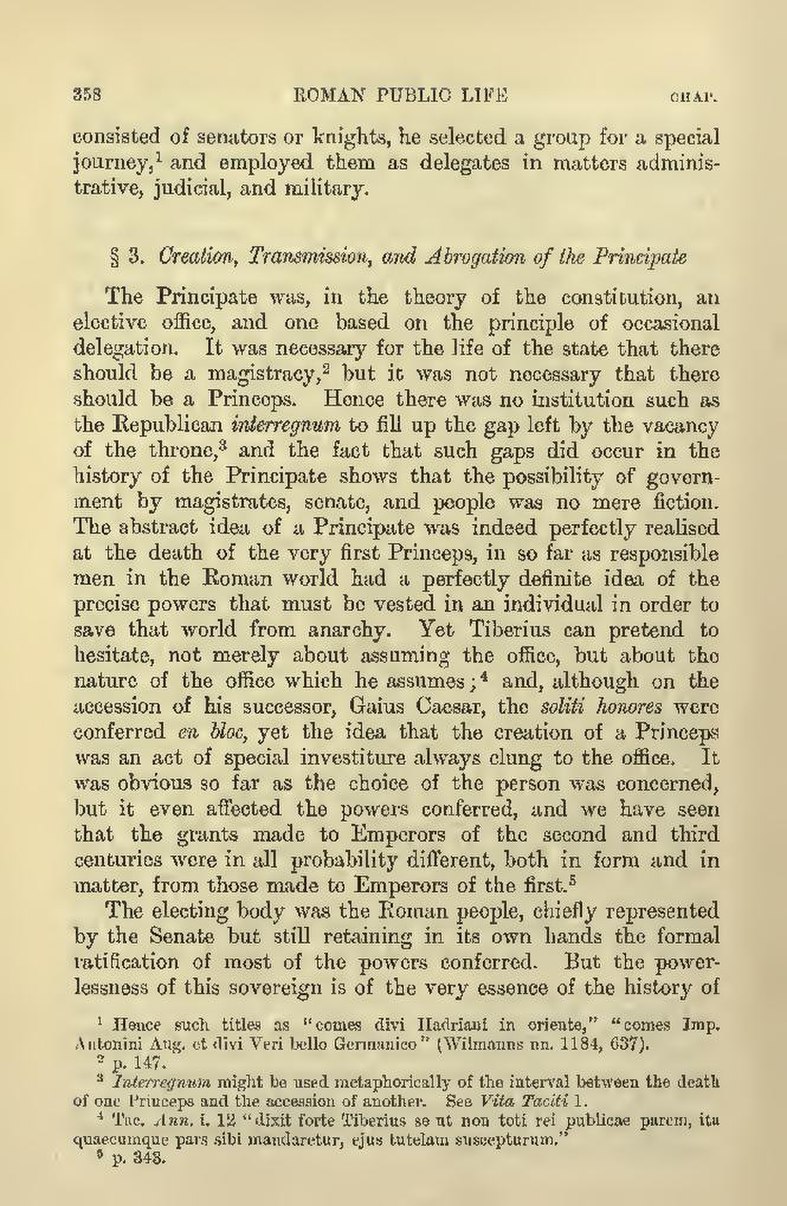consisted of senators or knights, he selected a group for a special journey,[1] and employed them as delegates in matters administrative, judicial, and military.
§ 3. Creation, Transmission, and Abrogation of the Principate
The Principate was, in the theory of the constitution, an elective office, and one based on the principle of occasional delegation. It was necessary for the life of the state that there should be a magistracy,[2] but it was not necessary that there should be a Princeps. Hence there was no institution such as the Republican interregnum to fill up the gap left by the vacancy of the throne,[3] and the fact that such gaps did occur in the history of the Principate shows that the possibility of government by magistrates, senate, and people was no mere fiction. The abstract idea of a Principate was indeed perfectly realised at the death of the very first Princeps, in so far as responsible men in the Roman world had a perfectly definite idea of the precise powers that must be vested in an individual in order to save that world from anarchy. Yet Tiberius can pretend to hesitate, not merely about assuming the office, but about the nature of the office which he assumes;[4] and, although on the accession of his successor, Gaius Caesar, the soliti honores were conferred en bloc, yet the idea that the creation of a Princeps was an act of special investiture always clung to the office. It was obvious so far as the choice of the person was concerned, but it even affected the powers conferred, and we have seen that the grants made to Emperors of the second and third centuries were in all probability different, both in form and in matter, from those made to Emperors of the first.[5]
The electing body was the Roman people, chiefly represented by the Senate but still retaining in its own hands the formal ratification of most of the powers conferred. But the powerlessness of this sovereign is of the very essence of the history of
- ↑ Hence such titles as "comes divi Hadriani in oriente," "comes Imp. Antonini Aug. et divi Veri bello Germanico" (Wilmanns nn. 1184, 637).
- ↑ p. 147.
- ↑ Interregnum might be used metaphorically of the interval between the death of one Princeps and the accession of another. See Vita Taciti 1.
- ↑ Tac. Ann. i. 12 "dixit forte Tiberius se ut non toti rei publicae parem, ita quaecumque pars sibi mandaretur, ejus tutelam suscepturum."
- ↑ p. 343.
